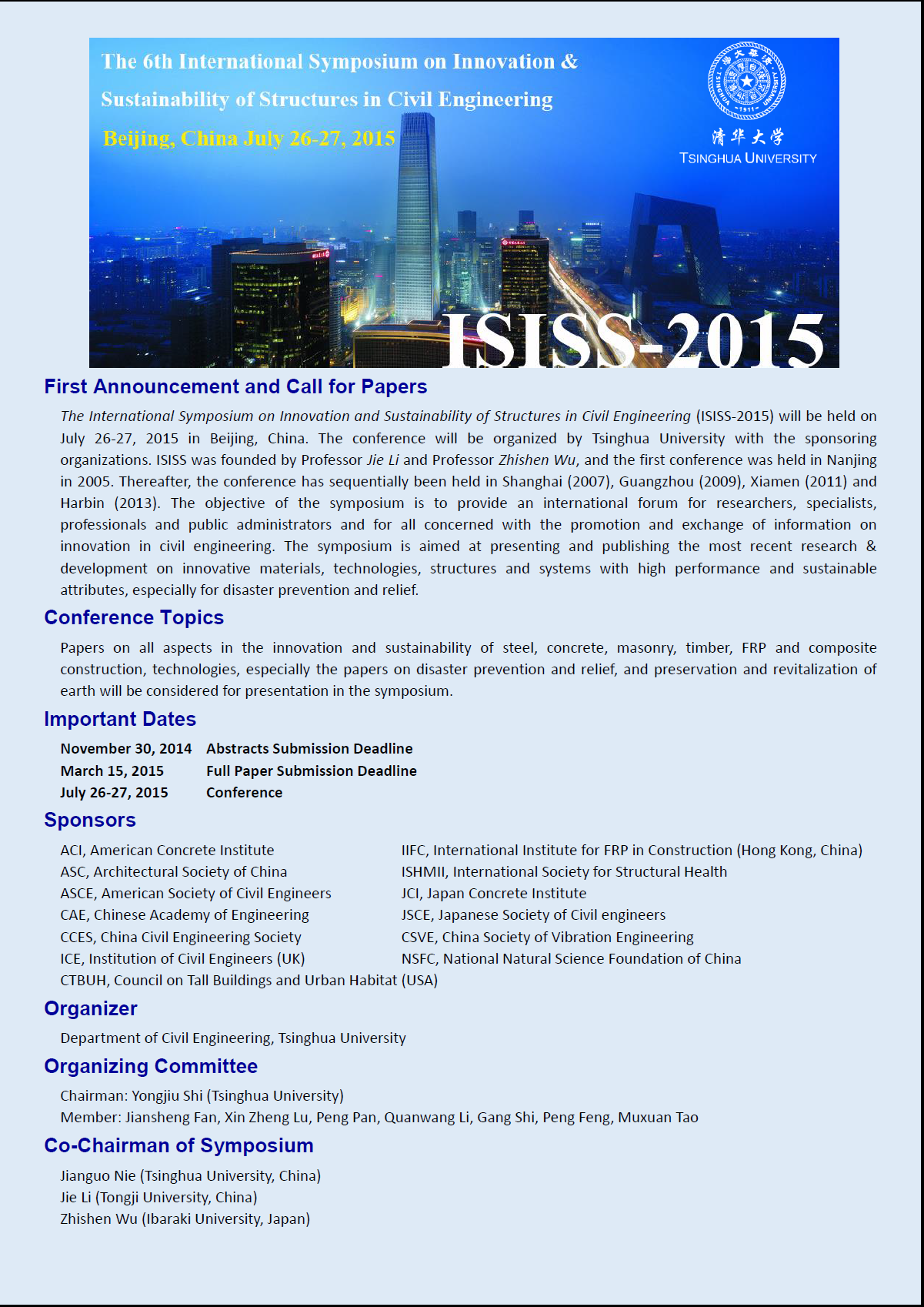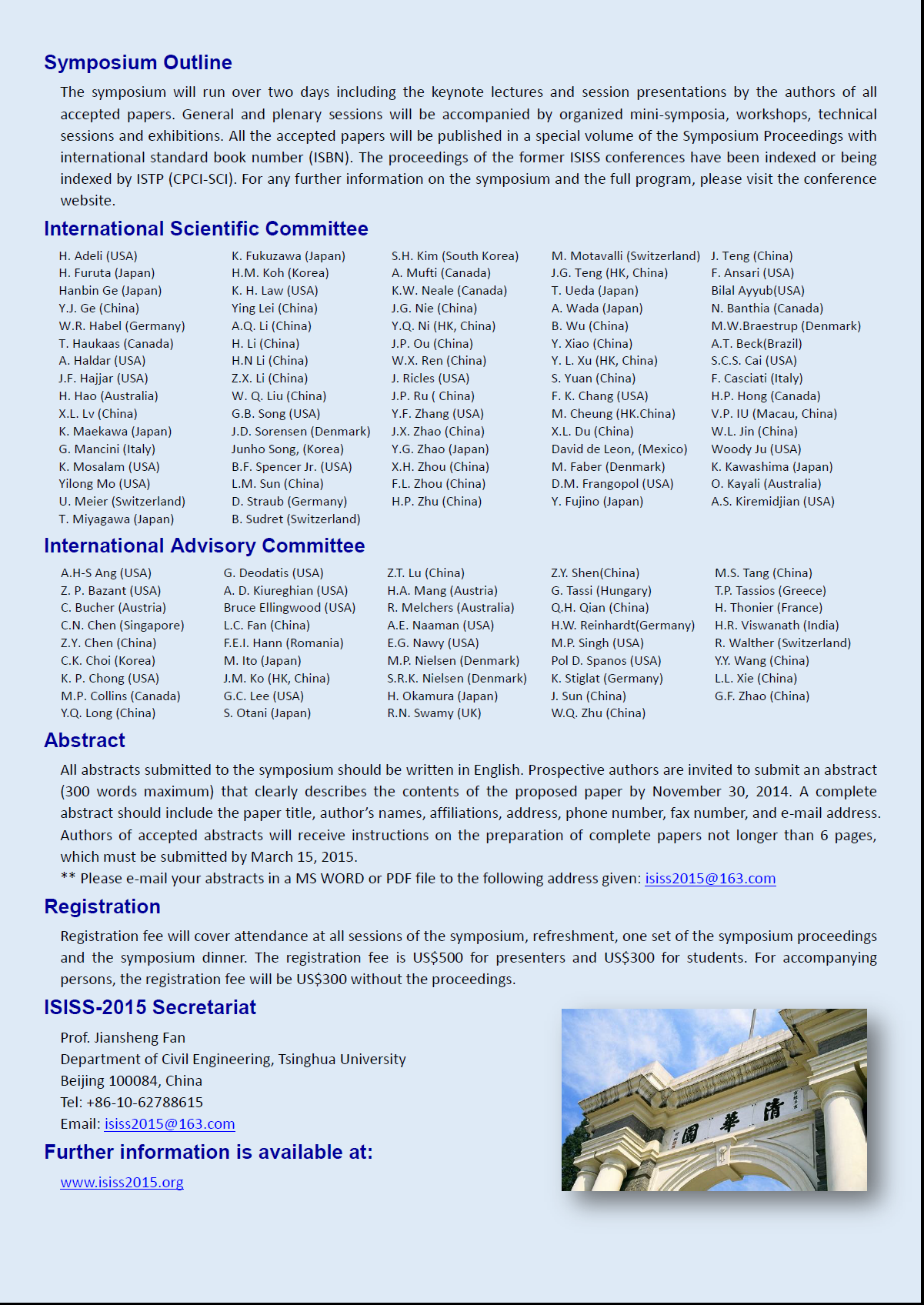

Sample Manuscript
Jian-Guo Nie1, Jie Li2, and Zhi-Shen Wu3
1 Affiliation, City, Country
2 Affiliation, City, Country
3 Affiliation, City, Country
ABSTRACT
Insert abstract text here. The abstract should concisely summarize key findings of the paper, and should consist of a single paragraph containing no more than 250 words. Please use the Times New Roman font for full paper. The full length of the paper is no more than 8 pages.
INTRODUCTION
Insert introduction text here. Please use the number-in-bracket [1-3] reference format throughout the paper.
MAIN HEADING
Insert main body text here.
Secondary Heading
The secondary heading use 11 pt. italic type.
Equations
Please number all equations as the sample Eq. (1).
 (1)
(1)
Tables
Table captions appear above the table. See Table 1 below.
Table 1. Word font size and formatting that you can use for your manuscript
Formatting style name: | Brief description: |
Paper Title | 16 pt. bold |
Authors | 14 pt. |
Affiliations | 12 pt. italic |
ABSTRACT TITLE | 11 pt. bold |
Abstract body text | 11 pt. |
MAIN HEADING | 11 pt. bold |
Body text | 11 pt. |
Figure caption | 11 pt. |
Table caption | 11 pt. |
Secondary Heading | 11 pt. italic bold |
ACKNOWLEDGEMENTS | 11 pt. bold |
REFERENCES | 11 pt. bold |
Figures
Figure example is shown in Fig. 1.

Fig. 1. Welcome to ISISS 2015
ACKNOWLEDGEMENTS
Insert acknowledgements here (if applicable).
REFERENCES
[1] Ou, J., Potter, H., and Li, H. (2010). “Structural health monitoring in mainland China: review and Future trends.” Structural Health Monitoring, 9(3): 219-232.
[2] Ou, J., and Li, H. (2010). “Structural health monitoring in mainland China: review and Future trends.” Structural Health Monitoring, 9(3): 219-232.
[3] Li, H. (2010). “Structural health monitoring in mainland China: review and Future trends.” Structural Health Monitoring, 9(3): 219-232.
